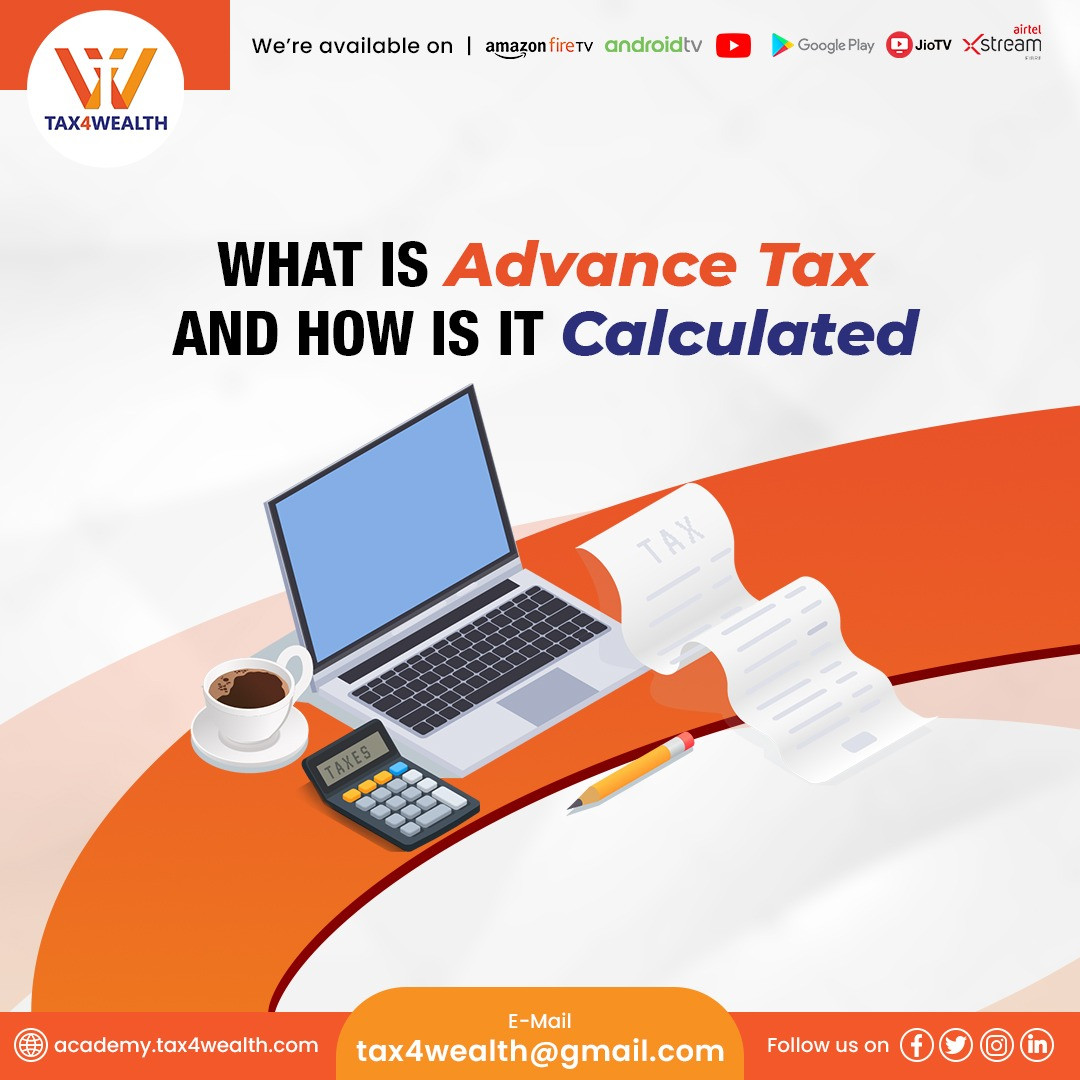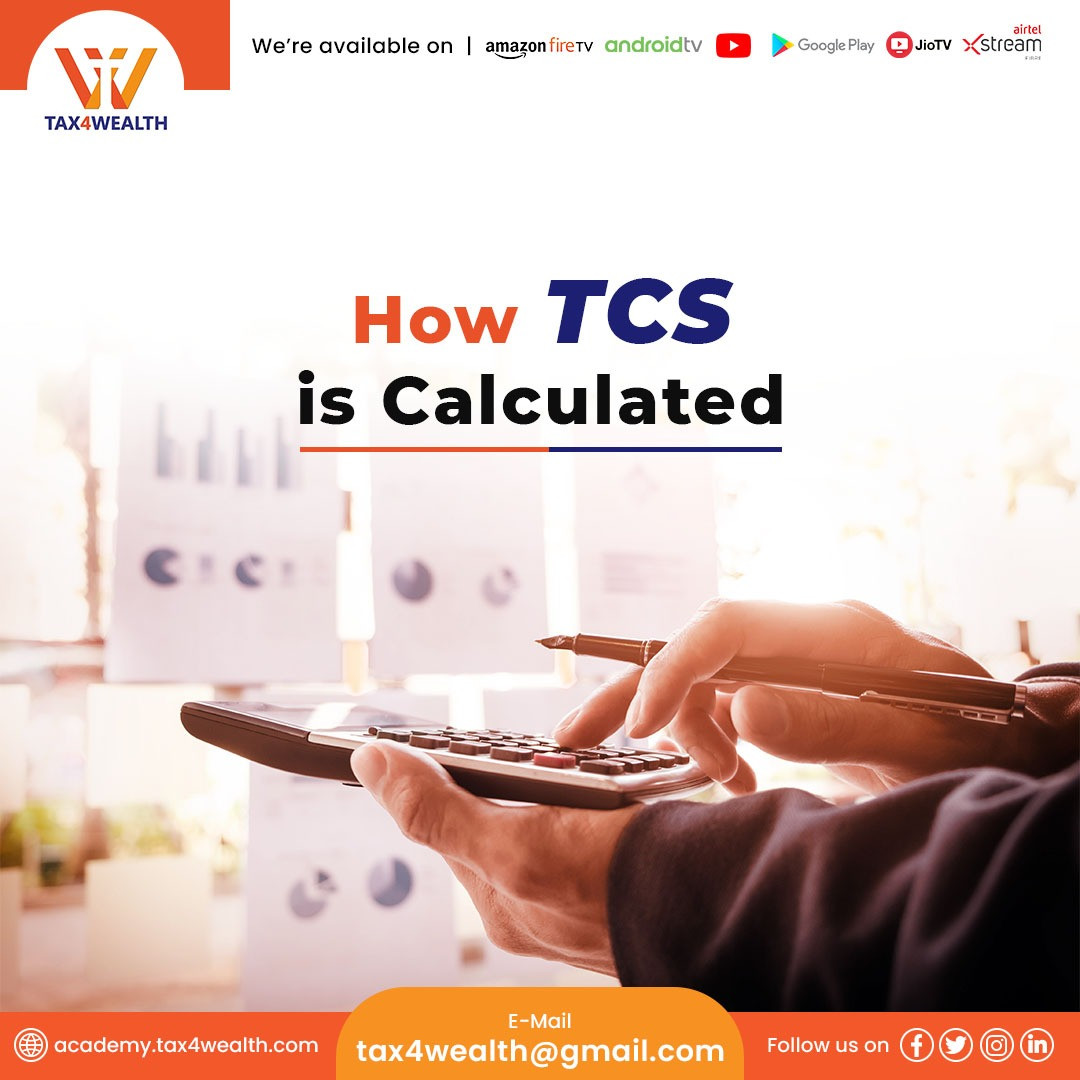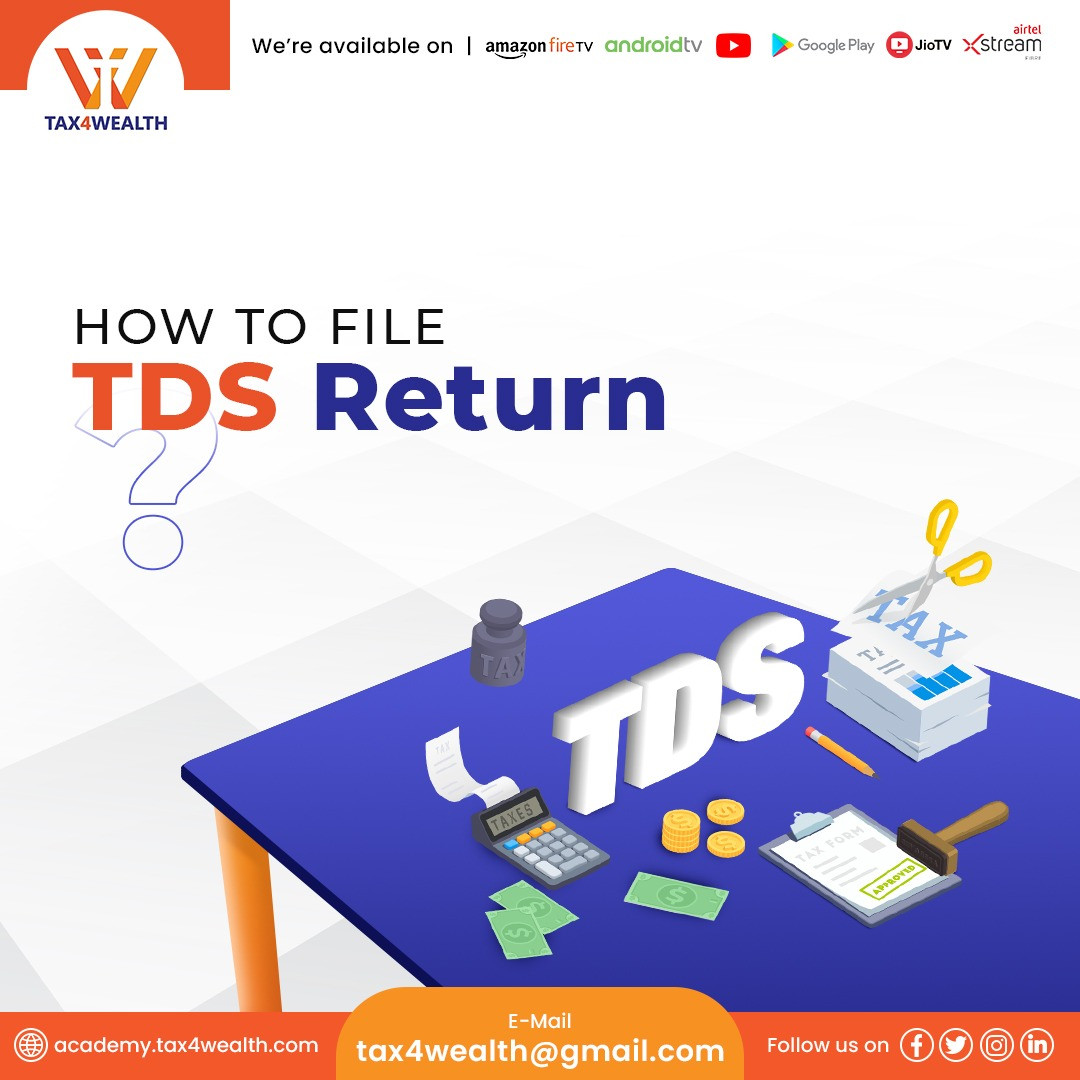
What is Advance Tax and How is it Calculated?
Income Tax Certification Course in India started with motivating to educate Income taxpayers. The taxpayers are generating income for the central government by their tax payment on time—regular revenue generated through taxation prayers for each year. The central government took in-depth steps to initiate taxation assortment online and with applications through mobiles.
What is Advance Tax?
Advance tax is the income tax amount paid before rather than a lump-sum payment at the end of the fiscal year. it's conjointly called Earn Tax. Advance taxes are paid in installments in keeping with the due dates as prescribed by the Tax Department.
Who is at Risk of Paying Advance Tax?
The following are a number of the eligibility criteria that should be satisfied to become eligible to pay advance taxes;
- If the liabilities are Rs. 10,000 or additional
- The remunerator should be a salaried or a freelance individual
- Income received through capital gains on shares
- Interest attained through fixed deposits
- Winnings received from a lottery
- Rent received from house property
Due Date for the fiscal year 2020-21 for Installment of Advance Tax Payment:
The last date for payment of installment of advance tax payment is 15th March 2021 for the fiscal year 2020-21. The taxpayers got to pay their advance on the aforementioned date. A table containing the tax schedule for the freelance individual for advance tax payment has been provided below;
|
Installment Date |
Payable Amount |
|
On or before 15th September |
More than 30% of the advance tax liability |
|
On or before 15th December |
More than 60% of the advance tax liability |
|
On or before 15th March |
100% of tax liability |
Advance Tax for the Taxpayers Excluding for Taxpayers lined below Section 44D of the tax Act
|
Payment Due Date |
Amount Payable as Advance Tax (in %) |
|
On or before 15 June |
15% of the Advance Tax |
|
On or before 15 September |
45% of the Advance Tax |
|
On or before 15 December |
75% of the Advance Tax |
|
On or before 15 March |
100% of the Advance Tax |
How to Pay Advance Tax Online?
The advance tax is paid electronically through the web facility expedited by the tax Department. The step-by-step method that has got to be followed for online payment of advance is provided below;
- Visit the official Government at www.tin-nsdl.com.
- Click on the option "Services" - then choose the option “e-payment"
- Select the right challan for the payment of advance tax
- Fill in the details within the type shown on the screen. The form can contain the main points like assessment year, sign, address, bank name, email address, CAPTCHA code, and alternative necessary details.
- After filling in with the relevant and proper details, the website can send to the net banking page of the bank. The tax to be paid is going to be rechecked on this page.
- Then, payment details are going to be shown at the side of the challan range
- It is critical to report the payment once the payment is completed. This can be done by adding an entry below the paid tax page.
Advance Tax Challan 280:
Challan 280 is employed by the taxpayers to pay their advance tax electronically through the website of the tax department of India. On the said website, the taxpayers will choose this challan and fill the form and consequently use it for payment of taxes online yet as offline. Just in case the remunerator needs to pay taxes offline, then the Challan 280 type is downloaded from the tax website and also the same is filled and submitted at the bank.
How to Calculate Advance Tax Payment?
The advance tax paid is calculated simply by following the bound steps mentioned below;
Step 1: Estimation of the income received in a very specific fiscal year that advance tax is being calculated. The subsequent are the income heads that have got to be thought of for the income earn attained throughout the money year;
- Interest financial gain received from the bank account and fixed deposits etc.
- Rental Income
- Income from Capital gains
- Income from Profession
- Income of minor if any to be supplemental to the total income of the remunerator
- Any alternative income
Step 2: Add all financial gain of the aforementioned heads to the head salary and make the gross non-exempt income. It's to be noted that advance tax doesn't apply to the financial gain below the head "Salary". Thus, the whole total could change the tax block, and consequently, it's going to change the liabilities.
Step 3: Calculate the amount of tax collectible with the applying of the newest tax slab
Step 4: In keeping with the TDS slab, deduct the TDS which can are subtracted already or are probably to urge deducted.
If the liabilities once the TDS deduction is Rs.10, 000 or additional then, the remunerator is at risk of paying advance tax.
Advance Tax Calculation:
For example, the liabilities of a Rohan are Rs.1 large integer within the fiscal year 2020-21. A table containing the main points of taxes to be paid by him as per the due dates prescribed by the Tax department has been provided below;
|
Due Date |
Amount Payable as Advance Tax |
|
On or before 15 June |
Rs.15,000 |
|
On or before 15 September |
Rs.45,000 |
|
On or before 15 December |
Rs.15,000 |
|
On or before 15 March |
Rs.25,000 |
Late Payment and Interest on Advance Tax:
In case the advance tax has been paid and 90% of the tax assessed, then the interest of 1% per month is going to be charged below the availability of Section 234B of the tax Act, 1961. The interest is calculated as 1% of the defaulted quantity of interest for every month till the tax paid is paid off. Identical penalty interest is going to be applicable just in case the tax isn't paid by the 2nd or 3rd deadline.
According to the provisions below Section 234C of the tax Act, 1961, if the advance tax installment isn't paid on time, then interest is going to be charged at the speed of 1%.
Exemptions Before Tax Payments:
The following are some of the exemptions in respect of advance tax payment;
- Senior citizens aged 60 years or more are not required to pay advance tax and are exempted from paying the advance tax.
- Salaried taxpayers who come under the TDS scheme are exempted from paying the advance tax. However, if there are earnings from other sources such as capital gains, rent, interest, or any other income, then the same will be subject to advance tax.
- In case the TDS deducted is more than the payable tax for the particular financial year, then the taxpayer is not required to pay advance tax.
Benefits of Payment of Advance Tax:
The following are some of the benefits of payment of advance tax;
- Advance tax helps in reduction of stress of the taxpayer. With the payment of advance tax, the taxpayer will be stress-free about the shortage of money and can avoid last moment tax payments.3e b -
- It helps to speed up the tax collection process and it is the easiest way to collect tax.
- It helps to increase the funds of the government and the government can earn interest on the amount already collected as tax.
- It saves taxpayers to be get defaulted from non-payment of taxes.
- It helps taxpayers to manage their finances and gives ideas of the income earned by them during the particular financial year.
Refund in Advance Tax Payment:
At the end of the financial year, if the Income Tax Department notices that the tax has been paid more than the actual amount of tax, then the Income Tax Department will refund the excess amount of tax paid. By submitting Form 30, the taxpayers can claim the refund. The submission of Form 30 must be made within 12 months from the last year of the assessment year.
Related News
No comments yet, Be the first to comment.













